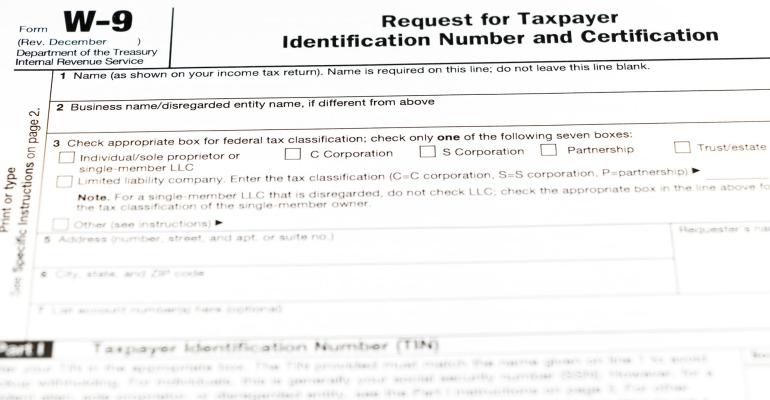In March 2024, the Internal Revenue Service (IRS) unveiled a revised version of Form W-9, Request for Taxpayer Identification Number and Certification, marking a significant update since its last revision in 2018. This change introduces new reporting requirements, particularly affecting flow-through entities such as trusts and estates. As a trusts and estates attorney, understanding these modifications is crucial for ensuring compliance and advising clients accurately. This article delves into the specifics of the updated Form W-9, its implications for trusts and estates, and whether these entities need to refile their W-9 forms.
The Essence of the Update
The revised Form W-9 now includes a new requirement for flow-through entities, adding a specific line (Line 3b) for these entities when they have direct or indirect foreign partners, owners, or beneficiaries. This addition aims to streamline the process for determining IRS reporting requirements, particularly concerning Schedules K-2 and K-3 reporting for entities with international tax relevance.
Critical Changes to Note:
New Line 3b. This line is specifically designed for flow-through entities like partnerships, trusts, or estates with foreign partners, owners or beneficiaries. It must be completed when such an entity provides a Form W-9 to another flow-through entity.
Clarification for Single-Member LLCs. The instructions for Form W-9 have been updated to remove confusing references to single-member LLCs. Now, the form clarifies that a disregarded entity should not complete the form in its own name but rather in the name of its owner.
Implications for Trusts and Estates
The introduction of Line 3b on Form W-9 has direct implications for trusts and estates, especially those involved in transactions or relationships with other flow-through entities. This change necessitates a more detailed examination of the entity's structure and its beneficiaries so that the form can be completed accurately.
Increased Reporting Requirements. Trusts and estates with foreign beneficiaries now have an added layer of reporting to consider. This is particularly relevant for entities that engage in transactions requiring Form W-9, as they must disclose their status regarding foreign beneficiaries.
Clarification and Compliance. The updated form provides clearer instructions for trusts and estates, helping these entities comply with IRS reporting requirements more effectively. This clarity benefits entities navigating the complexities of tax reporting and withholding.
Refiling Requirements
A critical question arising from these updates is whether trusts and estates must refile their W-9 forms. According to the IRS, previously collected Forms W-9 do not expire or need to be refreshed due to the publication of a new version. However, there are specific scenarios where refiling might be necessary:
There is a specific exemption for reporting if the trust or estate is considered to be a domestic partnership, but to be considered a domestic partnership, the trust or estate has to affirmatively declare that:
- The trust has no or limited foreign activity during the tax year;
- All of the direct partners (i.e., beneficiaries) are U.S. persons for domestic ownership and beneficiary requirements;
- All partners/beneficiaries are notified that they will not be receiving a Schedule K-3 (reporting their share of international activity); and
- No partner/beneficiary has requested a Schedule K-3. The trust or estate will need to refile their W-9 to qualify for this specific exemption.
The March 2024 revision of IRS Form W-9 introduces significant changes for flow-through entities, including trusts and estates. Adding Line 3b necessitates a closer look at the entity's beneficiaries and statuses, ensuring accurate reporting and compliance with IRS requirements. While not all trusts and estates will need to refile their W-9 forms, staying informed about these changes and understanding when a new filing is warranted is crucial for legal professionals advising in this area. Consulting with a tax professional or attorney specialized in trusts and estates is recommended to navigate these updates effectively.

